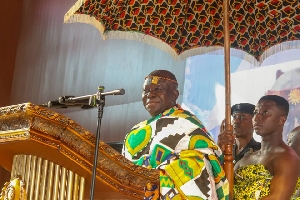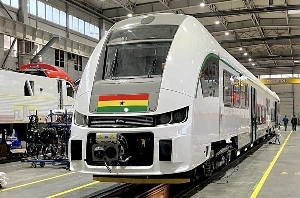Business News of Wednesday, 28 April 2021
Source: bloomberg.com
Ghanaian drugmakers approach AstraZeneca on vaccine production
Ghana’s pharmaceutical industry has approached AstraZeneca Plc about acquiring the rights to manufacture the U.K. company’s vaccine locally, a move that could boost supplies and speed up the inoculation program in the country.
The West African nation has to date received 966,850 doses of the inoculations from sources including the Covax initiative, which aims to ensure equitable access to COVID-19 shots, and has been allocated about 1.4 million more. That’s only enough to protect a fraction of a population of more than 30 million.
A solution would be to set up a local production plant, Lucia Addae, executive secretary of the Pharmaceutical Manufacturing Association of Ghana, said in an interview in Accra. But the group would need an agreement from the U.K.’s AstraZeneca and a pledge from the government to purchase the vaccines before any deal can be reached.
“We are having engagements with AstraZeneca mainly on the intellectual property to be able to manufacture their vaccines locally,” Addae said. “We need government’s commitment to purchase and a guaranteed market for the vaccines because they cannot be sold on the open market or over the counter.”
A committee has been set up to support local manufacturing, Health Minister Kwaku Agyemang-Manu told journalists Thursday without providing more details. Ghana has also received 16,000 out of a total of 300,000 Sputnik V doses it plans to buy from the Russian manufacturer, he said.
Vaccine Inequality
The issue of vaccine inequality is only likely to get more pertinent as wealthier countries inoculate their populations and start to open up their economies.
Many governments are calling for so-called vaccine passports as a condition to border openings, a policy that would cut off large swathes of the developing world, where procurement and distribution of doses are tougher challenges.
India and South Africa have lobbied the World Trade Organization for the temporary waiver of global intellectual property obligations during the pandemic, but the proposal has been largely opposed by the European Union, the U.S. and others, as well as many drugmakers concerned about future profits.
Setting up a vaccine-manufacturing site is expected to cost as much as $50 million and take anything between six months and two years to build depending on the amount of government support, Addae said.
In South Africa, the state-backed BioVac Institute plans to construct a plant at a cost of as much as $238 million after signing a manufacturing deal with U.S.-based ImmunityBio Inc., which is conducting Phase 1 vaccine trials in the country.
That could act as a stepping stone toward developing a national inoculation export industry, BioVac Chief Executive Officer Morena Makhoana said last month.













